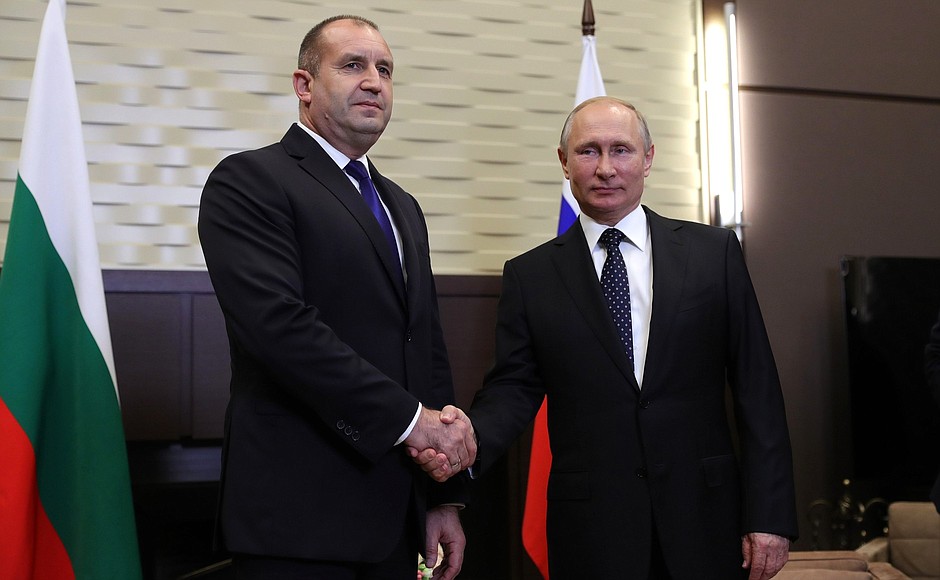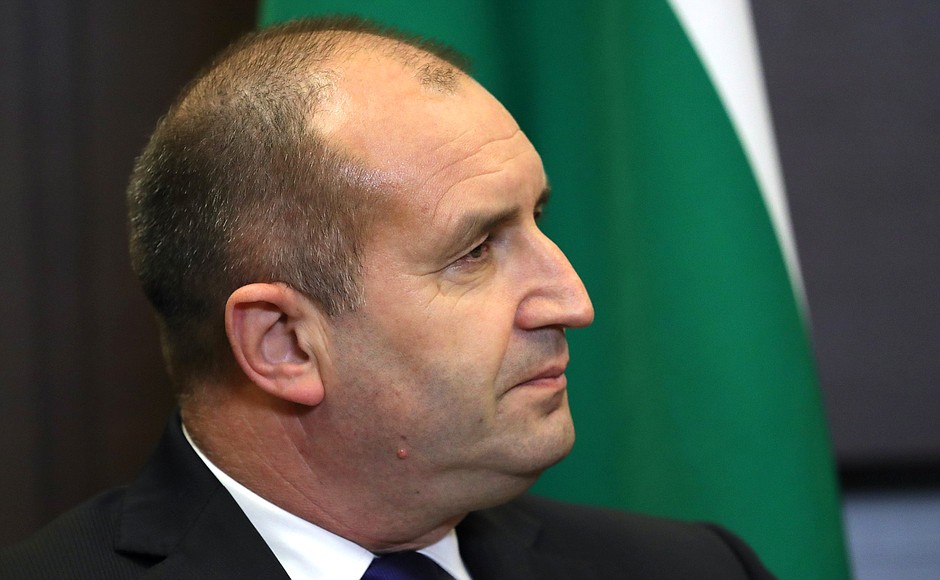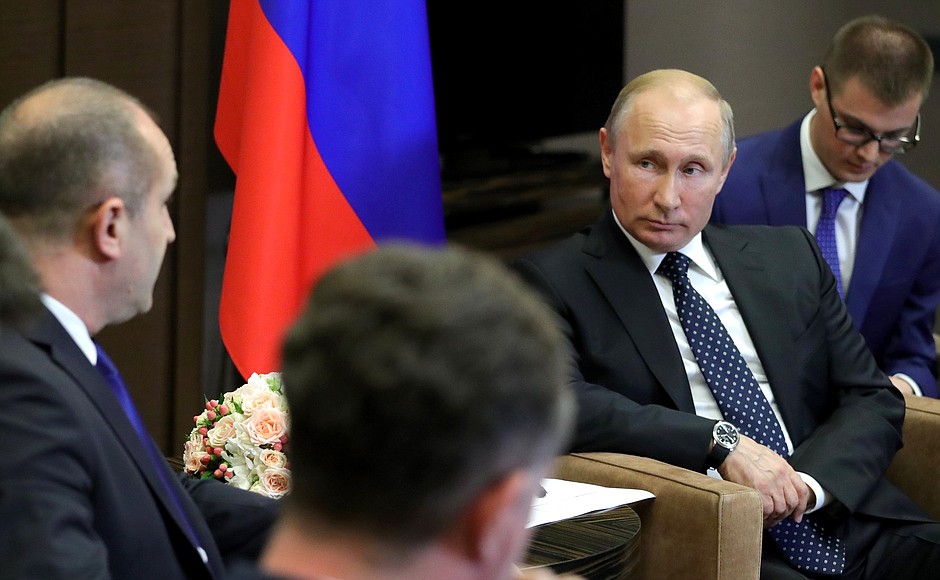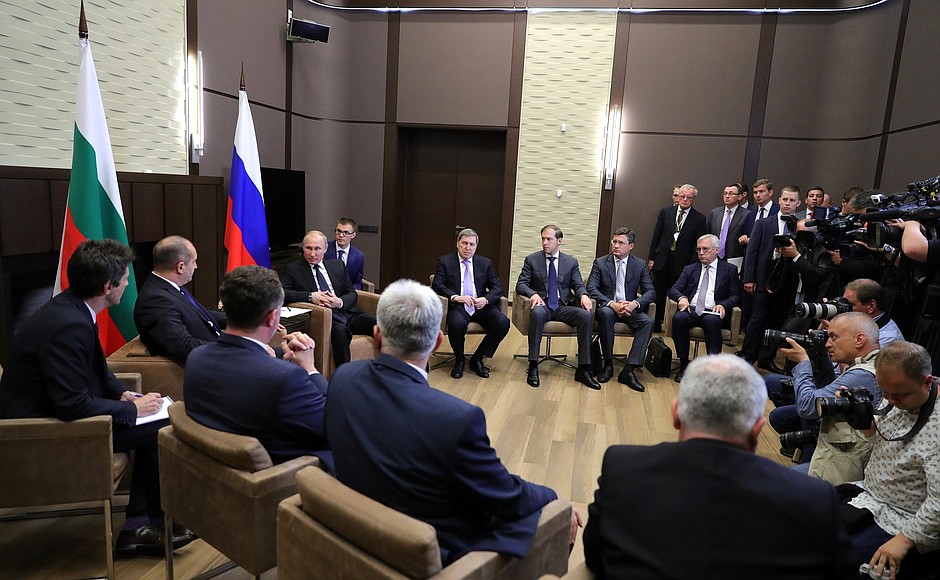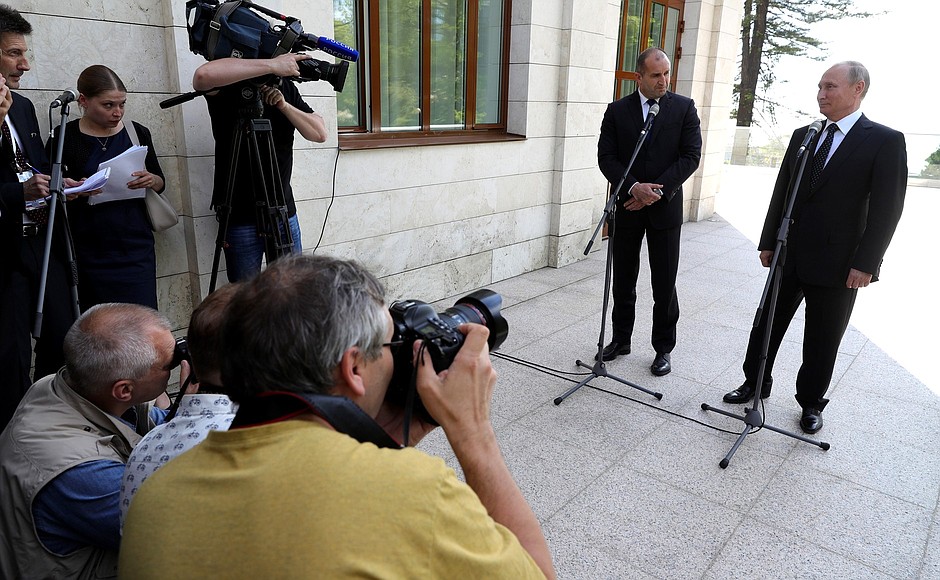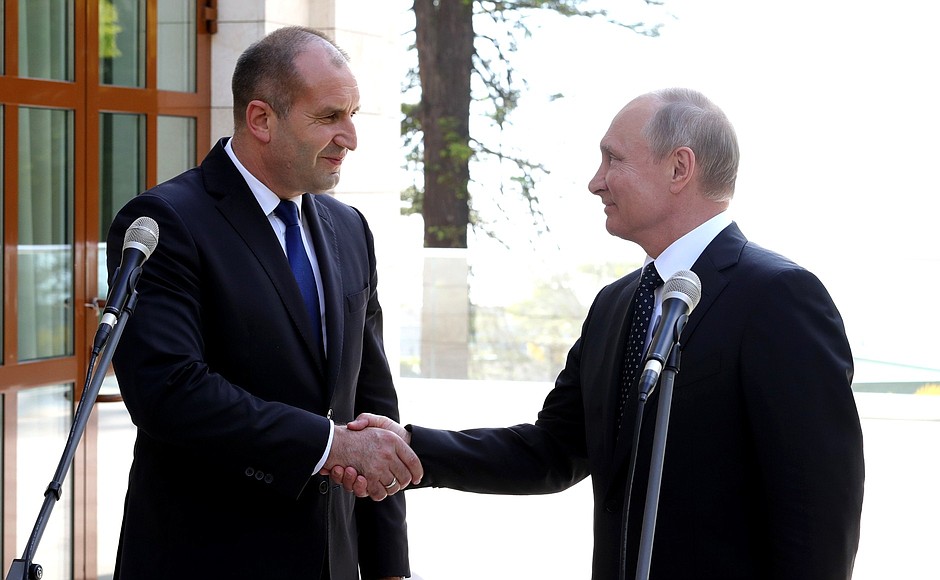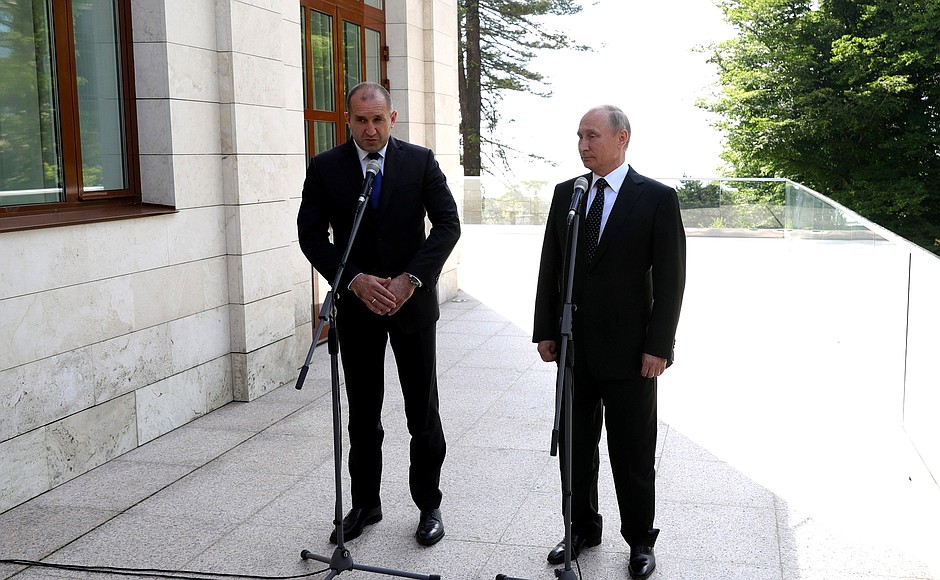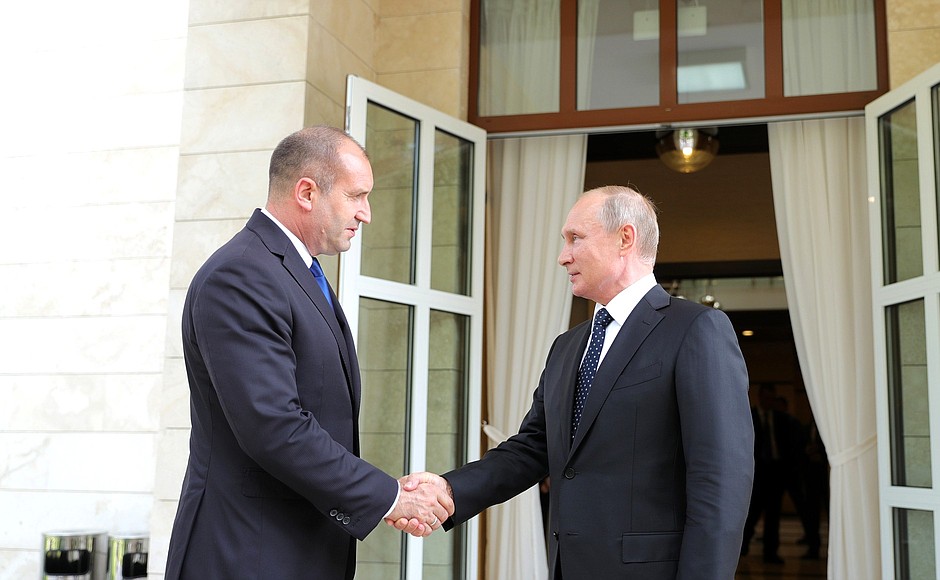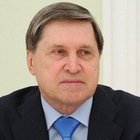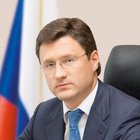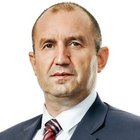The meeting was also attended by Presidential Aide Yury Ushakov, Energy Minister Alexander Novak and Industry and Trade Minister Denis Manturov, who co-chairs the Russian-Bulgarian Intergovernmental Commission on Economic, Scientific and Technical Cooperation.
* * *
President of Russia Vladimir Putin: Mr President, colleagues. I am happy to see you in Russia. Welcome.
You have come here on the occasion of the 140th anniversary of Bulgaria’s liberation from the Ottoman rule, which is a major landmark in our common history.
This is not all. We have many more things in common. The day after tomorrow we will mark the Day of Slavic Writing and Culture. I know that you have attended several cultural events in Moscow. This autumn, Russian cultural events will be held in connection with this date in Bulgaria. Days of Russian Spiritual Culture were held in Bulgaria recently on the occasion of the 140th anniversary of Bulgaria’s liberation.
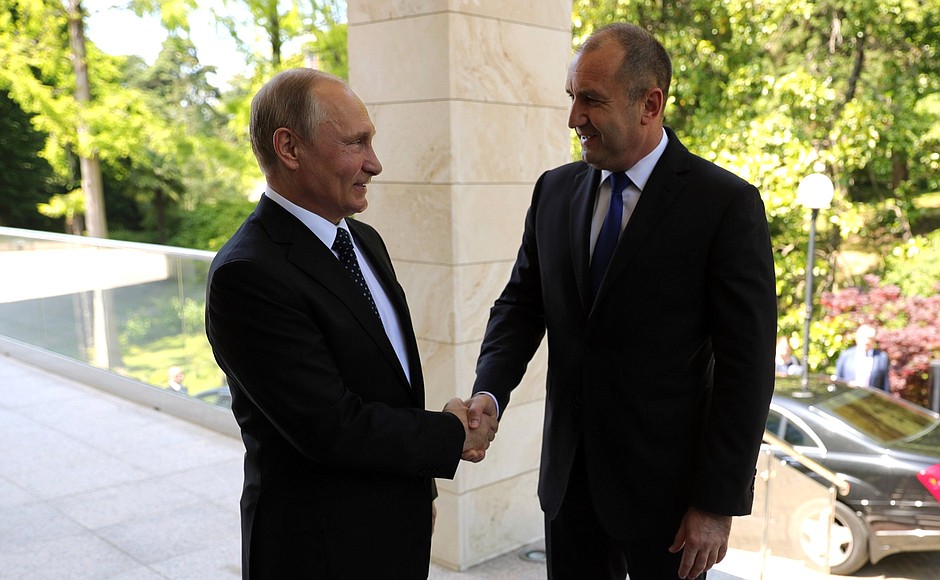
I will not speak in detail about our economic cooperation. I will only say that bilateral trade increased last year, which is good news. But our potential is larger than what we have been doing so far and what we have achieved.
In a few days, we will have the pleasure of welcoming the Prime Minister of Bulgaria to Moscow, with whom we will continue this discussion.
Once again, welcome.
President of Bulgaria Rumen Radev (retranslated): Mr President, thank you very much for your invitation.
I would like to congratulate you on your election for the next presidential term and to wish you success in this responsible position.
The goal of my visit is to try to resume the top-level dialogue between our countries, which has been suspended for years. This dialogue is of crucial significance in all spheres of mutual interest.
Also, I am glad that my visit is taking place on the eve of the Day of Slavic Writing and Culture, which we mark on May 24. I am happy that our people are celebrating this festival together now.
We will also celebrate together one more emblematic holiday, the 140th anniversary of Bulgaria’s liberation and victory in the Russo-Turkish War, thanks to which Bulgaria has reappeared on the map of Europe. This is why our relations are so special. They are not based on purely political or economic interests, but on very deep historical, cultural and spiritual ties between our people, ties that go back centuries. This gives us a number of advantages and makes our relations more natural. At the same time, this also forces us to be more open and to openly discuss the issues on which we differ.
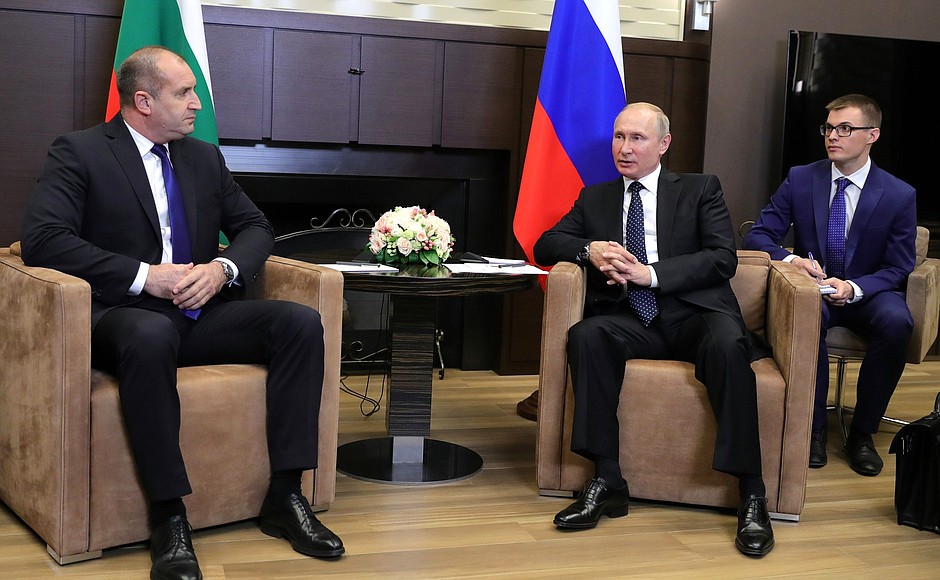
I would like to conduct a strategic review of our bilateral relations today. We must not only talk about our strong traditions and huge potential, which does exist, but also substantiate the need for practical action. We have very many common interests in trade, the economy, education and culture, as you have said.
I hope that today we will hold an open and in-depth dialogue that will encourage our governments to keep working towards this.
Once again, thank you for inviting us.
<…>
